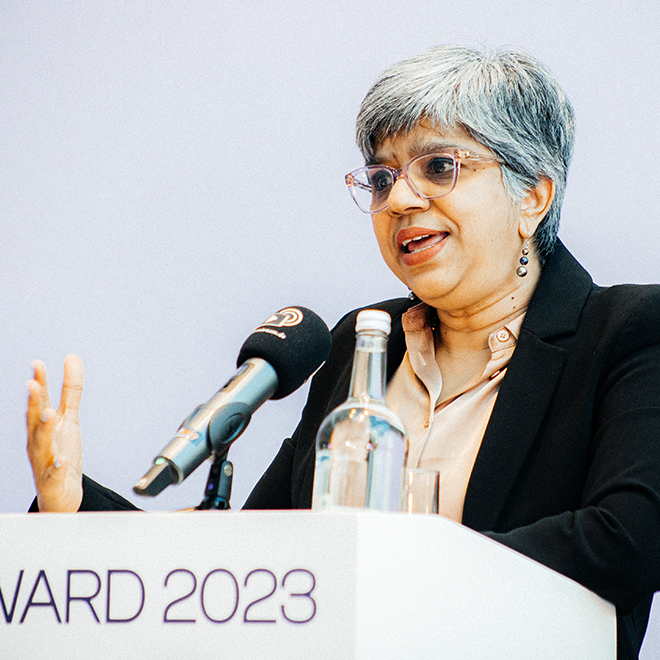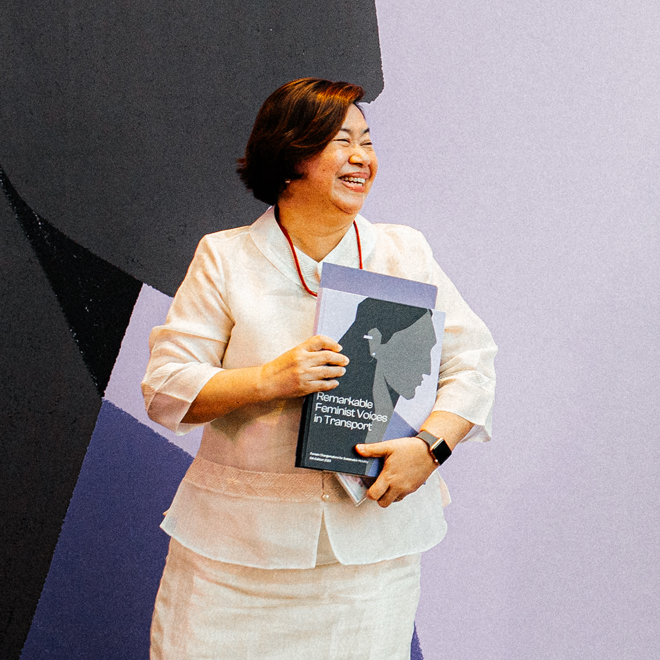Why sustainable transport should be feminist
Feminism is an indispensable part of sustainable mobility. A feminist transport system works for everyone and is an important driver for the realization of gender equality, as it can determine access to essential services like health care, education, employment, as well as social and political life.
Gender equity in transport and mobility is not a niche issue. Women and gender minorities worldwide face similar barriers upheld by persisting structures that have shaped our cities and transport systems.

“It is the work of care that makes us human. We should foreground that in any infrastructure, service, amenity, or public space that we design and plan in our cities.”
Kalpana Viswanath – Co-founder of Safetipin

“A [Feminist Transport] system is one that gives equal priority to the travel needs, patterns and experiences of women and girls in terms of the design of the system, physical infrastructure, timing of the services, cost, reliability, information provided to passengers, and accessibility. It pays attention to safety concerns for women and girls, ensuring a wide range of ways the system is proactive about womens’ safety, where the design of the system is equitable for women and takes into account their role as primary caregivers.”
Leslie Kern – Author of the Feminist City
Connecting the dots
Knowledge and best practices on gender and mobility are scattered and the gender data gap persists. While more and more institutions and initiatives share the goal of ensuring gender equity in transport and mobility, it is difficult to keep up with all of the exciting developments of measures and initiatives. Smaller regional and local organizations especially lack valuable visibility on the global stage.
Our approach
Women Mobilize Women and its partner networks Women on the Move (Asia) and Women in Motion (Latin America) are commited to unite feminist efforts in transport and mobility. The Global Alliance for Feminist Transport provides a global forum to connect more actors in the field and to scale up actions. Together, we aim to drive the global agenda setting on sustainable transport and mobility.

“Feminism is not about saying that women are superior or more important than men. It’s about recognizing the multiplicity of lived experiences and expectations of women, and how these impact the way that women navigate a city.
Dr. Ma Sheilah Gaabucayan Napalang – Urban and Regional Planning Professor, University of the Philippines
It recognizes how visibility and safety perceptions affect mobility opportunities and choices, particularly amongst the LGBTQIA+ community. Feminism should include women and girls and those not defined by the gender binary.”

“A feminist transport system is the dream of a city that belongs to everyone, that involves women as decision-makers and users at the same time. At this moment in time, we don’t have that.
Laura Ballesteros – Mexican Alternate Senator, Former Mobility Minister of Monterrey and Deputy Mobiliy Minister of Mexico City
If we are not empowered on the streets, in the government, in the private sector, then we experience a lot of weakness in the public space and transportation system because they are not designed for us. Feminist transport systems address that.”
Transparency
The content for this website is managed by the Women Mobilize Women team. For direct inquiries, you can contact Julia Remmers at .
Women Mobilize Women is funded by the German Federal Ministry for Economic Cooperation and Development (BMZ) and is implemented by the German Development Cooperation (GIZ) under the Transformative Urban Mobility Initiative (TUMI).
Our supporters
Beyond the organizations and networks exclusively working for feminist transport and mobility that are highlighted in our Overview of Organizations and Networks, many more organizations in the transport sector have actively integrated gender perspectives in their work and stand behind the mission of the Global Alliance for Feminist Transport. Discover their updates in Community News and Activites and our Knowledge Hub.
We collaborate with:



